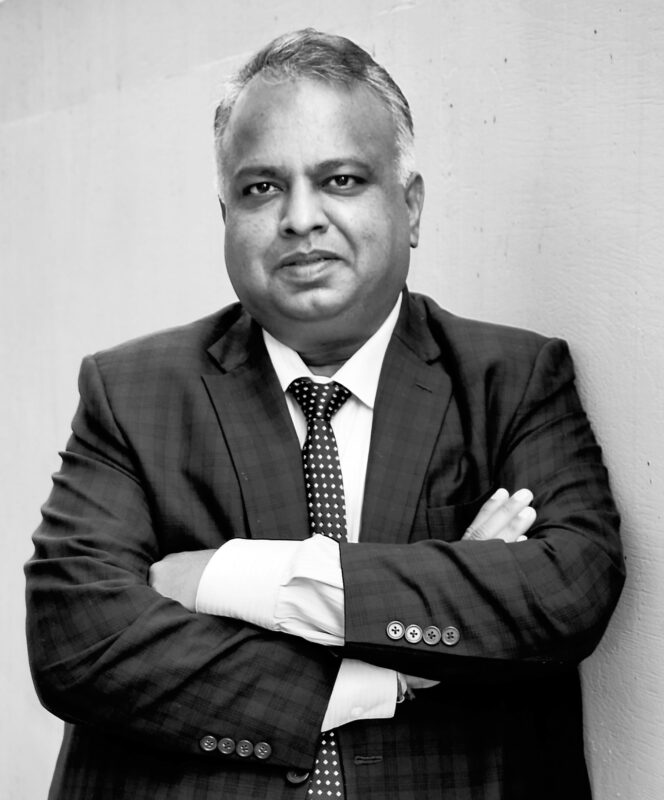
The finalists for WashingtonExec’s Pinnacle Awards were announced Oct. 13, and we’ll be highlighting some of them until the event takes place virtually Dec. 8.
Next is Cloud Industry Executive of the Year (Public Company) finalist Sandeep Shilawat, who’s vice president of Cloud and Edge Computing at ManTech. Here, he talks key achievements, career advice, shaping the next generation of industry leaders and more.
What key achievements did you have in 2020 / 2021?
I’m extremely proud of all that my teams have done in 2020 and 2021, but two especially important achievements come to mind.
First, I led the team that deployed our Secure Tactical Edge Platform as part of a Navy capabilities demonstration that led to its selection as a top 10 technology for both the U.S. Navy and Marine Corps. This solution scored extremely high on innovation and operational relevance. During the exercise, we showed how ST3P can bring cloud capabilities to on-premise literally anywhere including local environments such as the tactical edge. We demonstrated this by quickly building a roll-on, roll-off communications and cloud service offering that could be used in a connected or disconnected environment.
Second, this year, we developed and launched a first-of-its-kind solution called Fernglas, an innovative multi-cloud management platform that gives users a single-pane-of-glass view into multi cloud environments. Fernglas addresses one of the biggest gaps in the cloud industry — the need to access innumerable cloud systems — both the data they hold and recommended actions based on that data — in a user-friendly view.
With Fernglas, users can instantly observe a customizable set of metrics about their cloud environments and monitor them in ways not previously possible. This interoperability allows users to manage thousands — or even millions — of cloud assets across multiple cloud providers, all in one place. Managing all of this activity — from one central location — gives IT managers the ability to drive efficiency and savings in entirely new ways. We’re extremely excited about its potential, about what customers will be able to do with it and the early reception to it thus far.
Additionally, we also have trained and certified hundreds of cloud professionals at ManTech in cloud craft, designed a Cloud Genius program, and orchestrated several other internal, cloud-centric initiatives here at ManTech.
What are you most proud of having been a part of in your current organization?
ManTech is a very mission-oriented organization. Every day, we bring emerging technology and innovation to government customers in a regulated industry, to solve their most complex and challenging problems. We operate in a very competitive space, and a very competitive time, and ManTech is at the forefront of bringing digital technologies to our customers’ missions.
Here, I’ve had the opportunity to build our cloud practice, train hundreds of people in cloud technologies in support of our customers and their missions and create the cloud migration process for ManTech. Together, the best professionals in the industry are using a use case-driven approach to solve really hard problems for customers, and that’s something I’m exceptionally proud to have helped make happen.
How do you help shape the next generation of government leaders/industry leaders?
Mentorship is very important to me. And it’s important to ManTech, as well. By fostering a culture of mentorship, I help shape next generation of leaders. I mentor several individuals on enterprise architecture, program management, operations management, cloud and on other emerging technologies. My team is a team of leaders who’ve risen to their roles in this organization with the help of mentors and who give back by becoming mentors themselves.
Outside of ManTech, I am proud to be a founding chairman of the Cloud Council at WashingtonExec, which brings cloud experts together to help take our industry forward. I’m a part of the GSA’s Cloud Community of Practice, the Cloud Security Alliance, the Cloud-Native Computing Foundation, the National Cyber Security Center and the Professional Services Council.
Which rules do you think you should break more as a government/industry leader?
This is a great question. I’d say, first: Don’t simply accept the status quo — challenge it. That’s a fundamental rule to follow, rather than break, if you want to be a change-agent or a disruptor. The market is moving quickly and so are our adversaries. Our customers have critical missions and they need out-of-the-box and asymmetrical thinking. Because that’s where discovery happens. If you keep doing what you’ve always done, you’ll keep getting what you’ve always gotten. That’s not acceptable in any industry, but especially in ours.
The second rule to follow: Compliance is about scrutiny, not slowness. Compliance doesn’t have to make things slower. It goes hand-in-hand with not accepting the status quo. Automation is the key. You know you’re going to have to build and operate compliant systems; we can do that with the same speed we do everything else. It’s not an excuse to go slower.
What’s your best career advice for those who want to follow in your footsteps?
I have three pieces of advice, and I follow them myself: Believe in yourself; work for purpose; and work hard and be patient. Doing these things will take you far and down the right path.

